Altered America Read online
Page 3
I searched for proof of Tyndall’s intentions, for signs that he was not a man of science, only pretending to be one in order to seduce my gullible bride to be. Desiree always thought the best of people. It was up to my more rigorous mind to show her her error.
In his study, a massive book lay on the table, its pages well-thumbed. I turned it to study the spine.
A chill ran through me and I pulled my hand away, as though from a coiled serpent. King James’s Daemonoligie.
Using a handkerchief, I touched it, opened it. The words burned up at me:
This word of Sorcerie is a Latine worde, which is taken from casting of the lot, & therefore he that vseth it, is called Sortiarius à sorte.
Was Tyndall a sorcerer then? What unholy designs did he have on Desiree? This was far, far worse than I had imagined.
A cough sounded behind me. I dropped the page and spun.
Tyndall.
He had the gall to stand there, polite inquiry on his face.
“Some light reading, Stone?” he said.
I pointed at the book. My hand shook with emotion.
“No honest man has such a book in his library! What foul magics do you practice?”
“I have never claimed to be an honest man,” he said dryly.
“Demon!” I hissed.
He shook his head. His tone was still polite, as though we spoke regarding the proper slicing of a breast of pheasant or the correct garnish for a trout.
“I have been called that before, on my visits to this land,” he said. “But elf is more accurate.”
“I know a demon when I see one! You admit you are not human! You want not just Desiree’s body, but her soul!”
He snorted. “Her soul is her own. I want only her clever mind and machines, to entertain my Queen’s court.”
I gestured about myself. “Then this is all illusion!”
He shook his head. A smile lingered at the corners of his mouth, as though it pleased him to speak so straightly to me. “No, the real Lord Tyndall is…elsewhere. He will return when I am done, none the worse for the wear. Indeed, his fortunes will prosper as a result. As yours could.”
“You mean to threaten me.”
“I mean to say that the financial chains binding you to your fiancée could be replaced with other gold, of my own forging, as recompense.”
“Desiree is more than gold to me,” I said. “A good wife is a treasure. Fairy gold is said to melt away, or become dry leaves in the light of day.”
“So you refuse to think of giving her up?” he said.
“She may not be much,” I said. “Prideful and a little wanton, and overly obsessed with this world’s trumperies. But she is mine, and I will have her, and the rich dowry that comes with her, and the inheritance that will befall her when her father dies.”
“Do you love her?”
I hesitated too long. In the silence I heard the little gasp of betrayal behind me.
I turned.
Tears stood in her eyes before she fled.
She was nowhere to be found. No matter where I searched, even with the help of Tyndall’s servants, who also looked for their absent lord, mysteriously vanished as well. But when I let myself into my chamber that night, I knew she had been there. A tang of oil and steel hung like dragon’s breath in the air.
A shrouded figure stood beside the fireplace.
The note lay on my writing desk. Her handwriting was clear as copperplate.
It read: Claude, I do not think we will suit. But I have left you something that will, I think, let you have the kind of woman you desire. She comes with my dowry – I will not need it where Tyndall is taking me. I wish you only the best, Claude. I hope you wish me that in turn. The key is on the mantle. Remember to wind her up every seventh day. -Desiree
I pulled the cloth away. At first it looked like Desiree standing there, stiff and rigid, dressed in a gown of pale blue moiré that I recognized as the one she had worn to Lady Allsop’s ball. But closer examination showed the skin was dyed cloth laid over a harder surface, the hair sewn onto the scalp. A hole nestled in her décolletage, just big enough to accommodate the brass key I retrieved from the fireplace.
I inserted the key and twisted it, hearing the ratcheting of the cogs and gears inside my clockwork bride, until her eyelids unshuttered and I stepped forward to take her in my arms.
As we waltzed, I wept. Wept for my Desiree – not just what I had thought she would be to me, but for what she had been, for her clever hands and heart and laughter, and that she had loved me as much as I had loved her. Tears fell to stain the silk bodice as I held her close, sky blue darkening to stormy. The fairies hung in a circle around us, left to dance by their former mistress. I wept, and we danced.
She danced very well indeed.
Afternotes:
“Clockwork Fairies” is an attempt to bring race into the conversation of steampunk at a time when it was severely lacking. Since then, we’ve seen a number of excellent steampunk that manages not to be unrelentingly white: including novels by Sandra Odell and Nisi Shawl and anthologies such as Jaymee Goh’s The Sea Is Ours: Tales of Steampunk Asia.
Rare Pears and Greengages
Lily:
Violet is one of the halfies—mixed blood. Don’t no one talk much about where they come from, mostly whores who took on too many Fair Folk. Means a nice purse for the lady, and then the fairies educate the baby and bring it back here. Why they don’t stay in Fairyland, I don’t know, but I know Violet don’t call it Fairyland, and gets pissy-like if she hears me say that. It’s the Old Country to her.
Violet sleeps in the same cold servants’ room as me, where the wind whistles at night, like knives coming through the walls, but she don’t seem to mind, not that nor eating cabbage and bone soup like me and Cook, nor not having no money of her own. Her wages goes to the King and Queen of the Old Country, she told me once.
Mr. Smith pays a lot for her because the nobs like maids and butlers with fairy blood. But he don’t have to spend on her room and board, any more than mine, so she shares my room, up at the top of the stairs.
She comes to me after Mr. Smith has been up the stairs and gone again, leaving a shilling on the bed stand. It hurts, deep down inside, and I’m crying, not even worrying about saving the tears. It’d make him mad as thunder, seeing all them tears sliding down to soak into the blanket. Violet catches them, though, in the little bottle she wears around her neck. She whispers to me and hugs me and it’s nice, so nice that I don’t mind her taking my tears. Better her than Mr. Smith.
He don’t come to her. I heard him talking to his friend, Mr. Ryan, about it. “Give me the creeps, that one,” he said. “I think she doesn’t bother breathing unless someone is looking at her.”
Mr. Ryan laughed, nasty-like. “Doesn’t matter so much between the sheets, does it?”
“Be like swivving a fish. That clammy. And worse -- a dead fish, since they don’t move.”
He ain’t always so picky. Sometimes he does a vampire girl down at the mill when he’s been there inspecting it. I can tell—he comes back from those trips with a stink of old blood clinging on him. But he never comes to Violet.
When she first started a year ago, I said, “You’re Violet and I’m Lily. A regular boo-kay. Like sisters.” She looked at me blank as an empty window and I gave up on any visions of that right quick. But on these nights when she creeps into bed aside me and touches me with her cold fingers, it takes away all the bruises Mr. Smith left.
She whispers in my ear, “Maybe you’ll have a baby, Lily” and the moist words are like ice water spilled down my spine. I’d lose my place if I did, sure as Sunday. I’d lose my place and no other respectable establishment’d have me.
“No,” I whisper back. I fumble to light the candle end and find the bottle of vinegar and water. I try to wash all trace of him, all nasty slimy trace of him, off me while she watches. The wind shrieks and whistles like it was screaming No over and over, and it’s cold, s
o cold.
“Maybe,” she whispers again as I get back into bed. It makes me want to slap her face, ghost-white as a cellar mushroom. She never smiles, but sometimes there’s a spark behind her eyes. A little spark, like when you set flame to paper, and don’t know whether it’ll glow and go out, or leap up in flames. Is Violet a glow or a leap? I have no idea, and so I don’t say nothing, just pull the blanket around me.
I think about the lady next door, the foreign one, the one that looks so sad. What about her? Leap or glow? Violet tucks her pointed chin into my shoulder and lies against me, cold and solid as a stone. She wraps her skinny arms around me, but I don’t feel her breathing.
Mela:
The Colonel Sahib came to me and said come to England with me, and I will teach you how to read, and you can return someday and teach your people.
I came, but not to learn. I came because I could no longer bear the smell of the acacia trees, the way sunlight combed through the long grass, the grunts of the cheetahs chasing down an antelope. They all made me think about my son, grief like a spear in my side.
I would go to England and learn Iron and Progress and the death of the baby Jesus and how to forget. I made my goodbyes to the Elephant People and the Hyena People, but I did not tell my clan, the Lion People, what I was doing. They would know, they would catch word of it, but they did not approve, and pretended that the goodbye did not exist, as is our custom when there is something we do not want to say.
I came to London, where the air smells of smoke and despair. There were people like me, who walked as animals, the Colonel Sahib said, but only in one form—wolves. And in the twenty years he’d been in Africa, in Nakuru with me, they had become the pack leaders -- the upper crust, he called them.
“Demmed if I know just how they managed that, but they’ve made it clear enough they’ve no wish to associate with the likes of us, old girl.” He patted my head awkwardly. “I had thought to find you more company. But since the fairies came, everything’s topsy-turvy. The streets are full of Fruit addicts.”
I said I didn’t mind and I didn’t. My own people reminded me too much of my dead son, and other animals reminded me of my people. Now I go into the courtyard in the back of the house and sit smelling the frozen earth and watching the little sparrows flutter the complicated patterns of their wings and cock their heads, one side, then another, to examine the snowy gravel.
A gate in the garden wall leads next door. Originally the houses had been owned by a pair of brothers, the Colonel said, but they had moved on and now the gate between the houses was locked and curling plants grew along the bars in the summer, blue, odorless flowers kissing the space between them. I walk through the dead, icy grass and it leaves tear trails on my gown’s hem, lines of black against silvery-gray, to look into the other garden.
Another woman sits there. Her hair is piled atop her head in a messy mass like a thorn-weaver’s nest, and her clothing is white and filmy. The old Mem Sahib, the Colonel’s wife, died in a garment like that after three years in Nakuru. A nightgown. This woman is alive, sitting humming to herself as though the sunlight were warm here, as though there were no wind or snow.
I do not make a sound, but she turns to me nonetheless. Her eyes are dreamy, a madwoman’s or an addict’s, or both.
“Who are you?” she says.
“My name is Layla.” I stare at her through the bars.
She is a little dik-dik of a woman, but she shows no fear of me. She stands and comes over to the gate.
“You’re not human,” she says, looking at me. “One of them, one of the funny people, like the wolves or the fairies or the vampires, all come out of hiding.”
Her breath smells of vanilla and her eyes are all pupil. She sways where she stands, and another woman darts out from a doorway, a maid, dressed in magpie black and white, to slide her arm around the first woman, supporting her.
“Leave me be, Lily,” she says, pushing her away. “I’m human,” she tells me. “I’m Arabella Smith. Why are you here?”
“I remind the Colonel Sahib of my homeland.”
“And who reminds you of your homeland?” she demands, swaying again. The maid says something, but Mrs. Smith ignores her still. The maid is small and plain-faced and smells of sweat and soap and watery soup. Her hands are red and rough, and when she sees me looking at them, she pulls again at Mrs. Smith’s sleeve.
“No one,” I say. “I do not want to be reminded.” A sparrow flutters too close and I slap a hand out, leaving only a smear of feathers and blood. Arabella Smith does not notice, but the maid does, and her eyes are wide as she looks at me.
Lily:
We all run errands at the same time, or try to, the other housemaids and I. For one, it’s safer. Men don’t come looking so eager if they know they’ll find you in a group, and anyhow the streets ain’t safe. Betty knows a girl who got abducted, taken away into white slavery, and never seen again. I ask how she knows it was white slavery she was abducted to then. Tabitha says she knows for a fact witches come out at night and grab people, fly them up in the sky and drop them for the fun of it.
Betty gets cranky and says maybe it was white slavers or maybe it was witches but the important thing is that she got taken and no one ever saw her again.
And that’s the main point, really, of going together. Gossiping and telling each other all the little bits -- whose mistress done what to who. Tabitha’s not here one day and when I ask about her, no one will say nothing in front of the others. I get it out of them in whispers, crumbs at a time.
“She got in the family way.”
“Missus found out and she were that angry.”
“Said she’d have no doxies or children of sin in her house and threw her out.”
“But Tabby had enough saved for coach fare back to Sussex. Said she’d keep house for her brother and her mum.”
“Think her mum will let a disgraced woman in? I don’t. I wouldn’t.”
At least she had that chance. What can a woman do if she has no family? Become a whore. That’s the only door open to me if Violet’s whispered words come true. “Maybe you’ll have a little baby,” she says in my head. Tears start to my eyes, but I fight them back. No sense wasting them.
Some women get hired to cry in the Weeperies. They say it’s a cushy pull while it lasts, but you must cry on command, or be so soft that the Weepery can start you off by telling you sad stories or killing kittens. No one lasts long, though. They end up dry-eyed and hard-hearted as stones, while their tears get shipped off to Fairyland. The Old Country. How can it be old, when no one knew it existed until a few years ago?
I remember that day, when folks came running in to say one of the Parliament Members had said he was a fairy, and then suddenly it all came out, there was fairies an’ werewolves and all sorts of creatures, all around us. They’d been around us all the time.
One of my errands today is the Fairy Market. It’s down Threepenny Lane, near the river. Tents all jumbled and confused and everything glittering, glittering, shiny, the minute you come near. Glimmers of light, gone if you look straight at them. Ghosts of shapes. Goblins with their funny cat eyes, squinting against the sunlight.
I have two bottle of tears in my basket, and when I enter the market, the vendors swarm me, pulling at me to look here, look there, pinching me if I don’t move quick enough to suit them.
They shout, “Rare pears and greengages, pomegranates full and fine, figs to fill your mouth, citrons from the South.” I pick out two peaches, soft and juicy, warm as if they were full of fever, one for each tiny bottle.
At home, Mrs. Smith takes the peaches greedily and vanishes into her room. When she can’t get fairy fruit, she drinks laudanum and vanilla, but the fruit is most to her liking. She’ll be lost in dreams for days. Time enough to cry more bottles full, to buy her more fruit. I sniff my fingers, and smell the peaches, sweet and lush, and imagine their skin, soft and furry as mice.
Mela:
Some afternoo
ns, the dreamy-eyed, rumpled woman suns herself in the courtyard. I sit near the locked gate and tell her stories, the ones I whispered to my cub, long ago with the warm mud under our bellies and the blood of a fresh kill on our lips.
I tell her stories of crocodiles and storks, and the sinuous pythons that search through the acacia branches. I tell her how the little basilisks live on the insects and dormice they can stun, and how they dig their underground nests to lay clutches of eggs that may stay there in the dark and dirt for a decade or more before the eggs crack and their moist contents crawl out, bellies dragging in the dust, to make their way back to the safety of one of the big trees, its canopy grown up far past the depredations of elephant and giraffe.
Sometimes the maid Lily sits with her. The other one, the one that is part fairy, pays me no mind and I pay her none in return. I have seen her kind before, dealers in scraps, trying to buy the affection of their full-blooded kindred. She has her own thoughts, her own mysteries to contemplate. But the other, the human one, sits listening, wide-eyed. She thinks I am a great sorceress come from Africa. When I tell the story of my son, of how I nested him in a thorn-thicket every day when I hunted, to keep him from danger, she listens. She never asks what happens next and I do not tell her.
Lily:
The first month my bleeding don’t come and I tell myself it’s because I don’t eat much. Then it don’t come again, and again.
I try to ask the other maids what they would do without letting on why. I know whores do something, something to make the baby go away, but I also know it’s a sin. I don’t know what to do.
Violet lies in my bed, and puts her hands on my stomach and sings. She brings me all her food, don’t save so much as a scrap for herself, and so I let her touch my stomach. Her singing goes all through me, like something humming out from her hands.

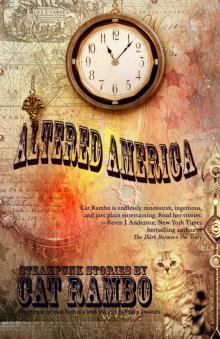 Altered America
Altered America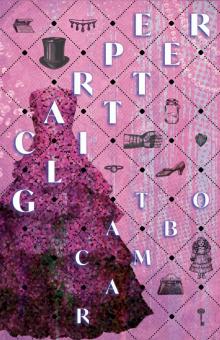 Carpe Glitter
Carpe Glitter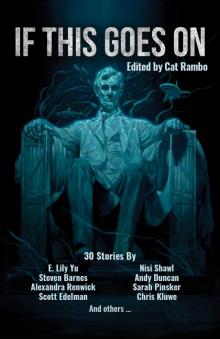 If This Goes On
If This Goes On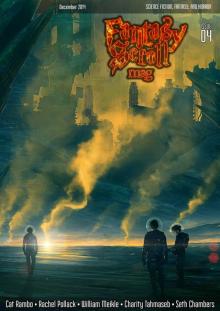 Fantasy Scroll Magazine Issue #4
Fantasy Scroll Magazine Issue #4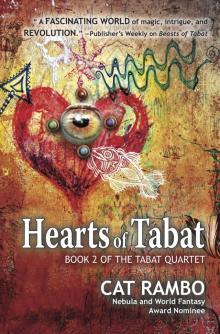 Hearts of Tabat
Hearts of Tabat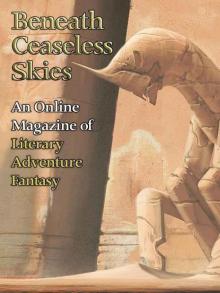 Beneath Ceaseless Skies #151
Beneath Ceaseless Skies #151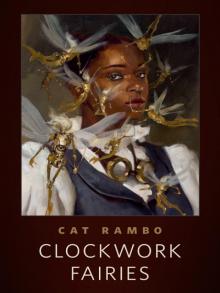 Clockwork Fairies
Clockwork Fairies Beneath Ceaseless Skies #170
Beneath Ceaseless Skies #170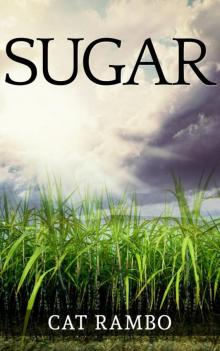 Sugar
Sugar Near + Far
Near + Far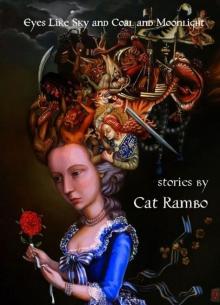 Eyes Like Sky And Coal And Moonlight
Eyes Like Sky And Coal And Moonlight